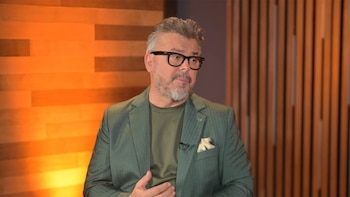
(ATR) The U.S. bid for the Olympics needs a new map to avoid crashing on the rocks.
In the three months since Boston was nominated by the U.S. Olympic Committee as a candidate for the 2024 Olympics, the promise of a front-running bid has dissolved.
Instead of focusing on what the bid would mean to Boston and the United States, leaders of Boston 2024 have spent that time largely in defensive mode. There were revelations of high-priced consultants, including the former governor of Massachusetts billing $7,500 a day for his influence internationally. For two months in a row, a poll by a Boston radio station says public support is in the tank, down to 36% in the latest survey.
Obviously feeling the chill winds of the public towards the Olympics, the mayor of Boston decided last month to let the people have their say with a referendum, the cruelest of bid killers. Just ask Munich or Krakow, two cities that abandoned the 2022 Winter Olympic race after failing to win voter support. And then there’s the classic case of Denver, which surrendered the 1976 Winter Games when a referendum was defeated after the IOC awarded the Games to Colorado. Now Bostonians have the chance to reject the Olympics before the bid even reaches the IOC.
With the vote scheduled in November 2016, backers of the bid in Boston -- as well as the USOC -- face an agonizing 15 months of campaigning for public support. That includes a stretch of time when the city is allowed to take its message internationally, with one to one meetings with IOC members, federation leaders and other opinion-makers in the Olympic Movement. If public opinion remains in the tank, it may be very hard to convince IOC members to give the Massachusetts capital full consideration.
The defeat of a referendum would be a huge embarrassment to the USOC, which has been encouraged by IOC members to launch a new bid for the Games. After the unsuccessful campaigns of New York for 2012 in Chicago for 2016, the belief was that a strong candidate could bring the Summer Olympics back to the U.S. for the first time since Atlanta in 1996.
Despite some real strengths in the Boston bid, right now this is not a bid with a firm foundation. It is truly tottering towards collapse unless there is a significant reversal of public doubt about the Olympics, well in advance of next year’s referendum.
In some ways, the USOC had a hand in creating this mess, deliberately asking the four cities it was considering for 2024 to avoid significant public disclosure of their plans for the Games. The lack of transparency was not welcomed by some in Boston who have complained regularly in the past year. That has given rise to the only organized opposition to an Olympic bid among the group of cities, which also included Los Angeles; San Francisco and Washington, D.C.
Instead of spending the past year hiding Olympic plans from the public, the USOC should have been encouraging each of the citiesto begin cultivating support and enthusiasm for the Olympics. How the U.S. Olympic Committee opted for Boston - knowing public resistance was a factor - remains a mystery. The 15-member USOC board made the decision, supposedly unanimously, but nobody’s talking. Opaqueness doesn’t fall far from the tree.
This week, the USOC felt compelled to tweet out a statement affirming support for Boston in the face of speculation that the ship was about to be abandoned. But the bravura had all the feel of whistling past the graveyard.
"It’s early," I am told by bid experts. It’s true: London began its run towards the 2012 Olympics without majority public support in the early days. Tokyo struggled to find a majority to support its bid for 2020 until the IOC vote neared. But neither city needed to hold a formal vote to move ahead with its candidacy.
So far, there is no indication of what course Boston will follow to cure its publicsupport deficit. I get a sense that opponents to the Games in Boston feel as if something is being shoved down their throats. Many are probably not opposed to the idea of the Olympics, only the way they may feel left out of the process. Again, this is homework for the bid that should have been done a year ago instead of in this mad scramble to find support.
Instead of hearing worries from the public about cost overruns and taxpayer liability, the bid needs to seize the narrative to tell people what’s really happened when the Summer Olympics come to the U.S. Taxpayers did not bail out Los Angeles in 1932 or 1984. The same for Atlanta in 1996. Presumably, there is enough management talent in Boston to replicate the feat in 2024.
There also seems to be a lack of personality, an absence of charismatic leaders who could warm up the public to the bid. On the political side, Mayor Marty Walsh seems as if he’s the only advocate willing to stick his neck out for the Olympics.
Where are the athletes of Boston? Olympians abound in the city and the state – they might imbue a bit of passion about the Games.
The campaign for the Atlanta Olympics grew out of broad-based community support where there was little doubt the city wanted the Games.
Bid backers now face a triple challenge. This is the time to prepare the technical part of the bid, deciding on venues, transport plans and the myriad of other details that need to be presented to the IOC. Then they’ve got to persuade IOC members that this is a plan that is superior to those about to be hatched by Paris, Rome and Hamburg, the strongest likely rivals in the campaign.
None of that will matter if the good ship Boston hits the rocks on its intended journey to Olympia.
Written by Ed Hula
20 Years at #1: Your best source of news about the Olympics is AroundTheRings.com, for subscribers only.
Últimas Noticias
Utah’s Olympic venues an integral part of the equation as Salt Lake City seeks a Winter Games encore

IOC president tells Olympic Movement “we will again have safe and secure Olympic Games” in Beijing

Boxing’s place in the Olympics remains in peril as IOC still unhappy with the state of AIBA’s reform efforts

IOC president details Olympic community efforts to get Afghans out of danger after Taliban return to power

North Korea suspended by IOC for failing to participate in Tokyo though its athletes could still take part in Beijing 2022




